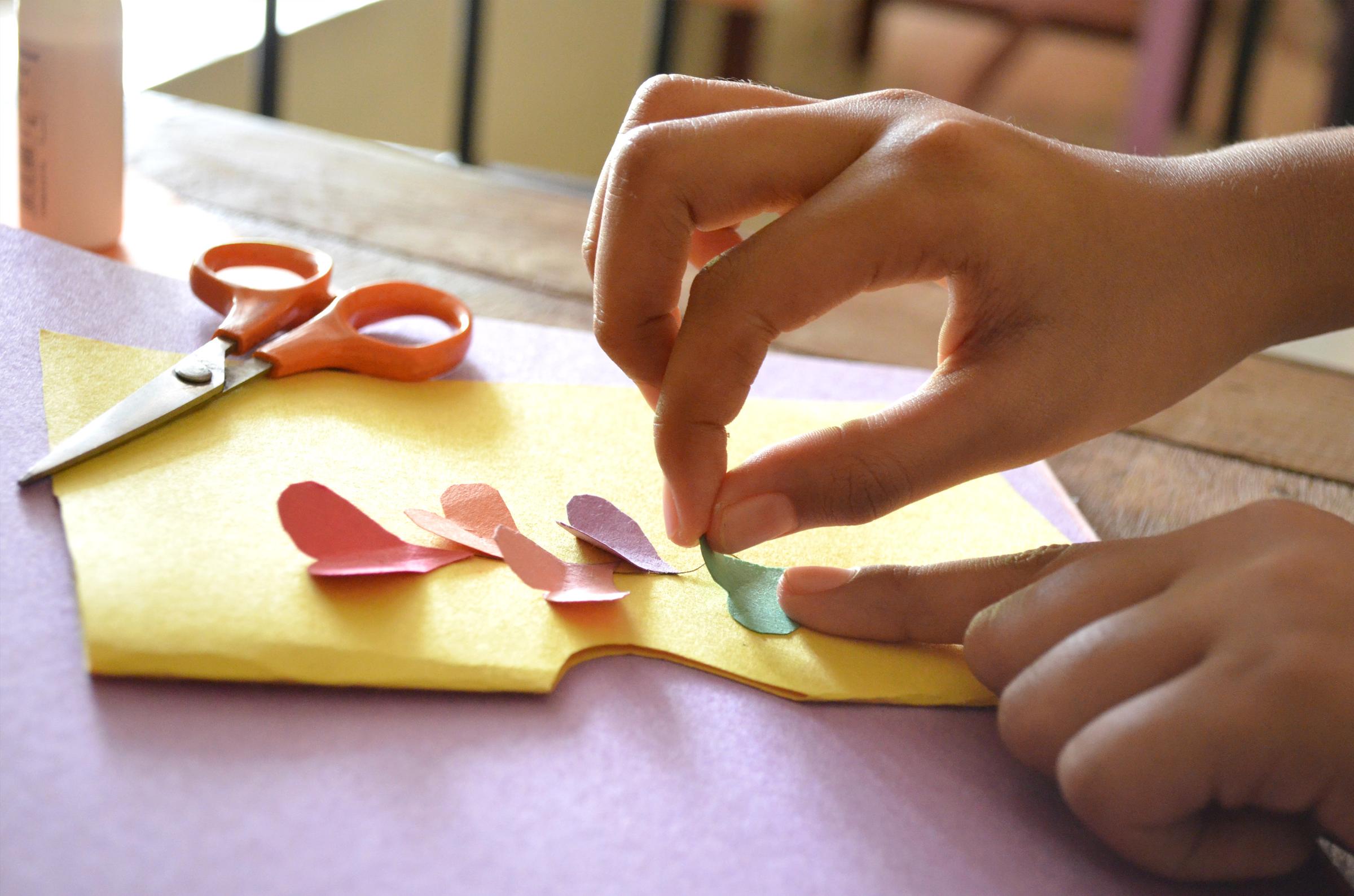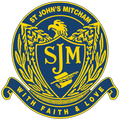Specialists Programs

Specialist Programs Term 4
Performing Arts
Prep and 1/2 classes
In the first few weeks of Term 4, all students will polish their dances and script work for Production. Students will use simple technical and expressive skills when presenting dance that communicates an idea to an audience. They will also use safe dance techniques to ensure they are protecting their own body as well as those around them while dancing. We will continue to explore how we can use facial expression, gesture and movement to create believable characters for our class item. Once we have filmed each class item, they will analyse the process and respond to the dances they performed in and the ones they viewed, expressing what they enjoyed and why.
Later in the term students will begin a unit of work on Music. Preps will mainly work at listening and staying in time with the beat and identifying dynamics of a song and tempo. We do this using a number of chants and songs from The Music Room Book and they will play percussion instruments to each of the songs. The 1/2 classes will also begin looking at different rhythm patterns, learning to play them on percussion instruments and identifying them when listening to music. They will compose their own rhythm pattern to be played on the Djembe drum. All Junior students will respond to music, expressing what they enjoy and why, rehearse and perform songs and chants which they have learnt using percussion instruments.
3/4 and 5/6 classes
In the first few weeks of Term 4, students will be refining their Production skills of dance, movement, voice and expression. They will use safe dance practises to improvise and structure movement ideas for their class item, contributing ideas to the dance within a group devised process. They will perform these dances, using technical and expressive skills to communicate ideas and intentions for our Production pieces and will perform them on film on Friday 12 November.
After the production, students will spend time thinking reflectively on their participation, performance application and analyse how their skills have changed over time. They will discuss how they started and how we had to change our ideas halfway through the process. With the continuation of Covid lockdowns, the students were invited to think about how the Production would look on film instead of being performed to a live audience. They explored how to use different camera angles and techniques and were encouraged to identify which parts of our script could be filmed using different camera angles.
Later in the Term, they will begin a unit of work based on Music. The 5/6 classes will explore how we can compose our own pieces of music using Chromelab’s Music Maker App. They will need to incorporate elements of music such as form, dynamics, tempo, rhythm patterns and opposing sounds. The 3/4 classes will explore how we can take well known songs and replicate them on the glockenspiel by following the Treble Clef notes.
Ms Lou Devoy
ldevoy@sjmitcham.catholic.edu.au
Italian
Prep
This term the students will learn simple language about the family. They will look at different types of families and compare what their family structure looks like. They will learn vocabulary about family members and they will practise adjectives to describe different family members. Activities will include a story, songs, games and written work. The end of term will be spent learning about Italian Christmas traditions, songs and participating in fun Christmas activities.
Year 1/2
This term the students will learn the parts of the body in Italian. They will begin the topic with a story about Pinocchio and will point to their own parts of the body and name it in Italian, with anemphasis on singular and plural identification. Language will include; “ Ho un / Ho una/ Ho due “ and “ Questo e’, Queste sono, Questa e’ …”
The students will conclude the term with fun Christmas Italian activities and songs.
Year 3/4
This term the students will learn the language of clothing in Italian. This will include identifying what is in their wardrobe, translating vocabulary, learning to say what they wear and preferences when it comes to choosing what to wear. The students will revise the colours of clothing and will also learn to describe what a friend is wearing. At the end of term the students will investigate and engage in Italian Christmas traditions and songs.
Rosetta De Amicis
rdeamicis@sjmitcham.catholic.edu.au
Chinese
In Chinese this term, students will be introduced to simple questions.
For example,
请问… ? Excuse me, can I ask….?
你是哪国人?(Which country do you come from?)
你会说汉语吗?(Do you speak Chinese?) and seek clarification, for example, …
对吗? (Is that correct?)
Students will attempt to describe and give information about themselves and their preferences, their environment, experiences and interests, for example,
我很喜欢唱歌 (I really like singing)
我的学校很漂亮 (My school is very beautiful)
我觉得澳大利亚是很好的国家 (I think Australia is a great country)
Students will use intonation and stress to engage audiences and participants.
The culture component of this module will introduce:
- Chinese traditional desserts
- common fruits in China
- featured traditions of three traditional Chinese festivals
- popular dessert restaurants in China
- the Chinese style options in Western fast food chain restaurants in China
- popular snacks in China
Ange Crowe
acrowe@sjmitcham.catholic.edu.au
Visual Arts
Prep
During Term Four the students will participate in activities exploring both 2D and 3D art forms focusing on drawing, painting, constructing and decorating. They will be encouraged to select, arrange and make choices about expressive ways of using the art elements (e.g. line, shape, texture and colour) in their work. The students will use and integrate a variety of tools and materials to create simple art works. The students will be given the opportunity to improve their fine motor skills through drawing, cutting, pasting and painting. During class, the students will be encouraged to discuss and express their opinions about the art ideas they are exploring and the artworks they are creating. The students will be encouraged to be inquirers, knowledgeable, thinkers, communicators and reflective artists.
Year 1and 2
During Term Four there will be particular emphasis on the students being both artists and thinkers. The students will be encouraged to give thought to their artwork before they take action and weigh up the possible outcomes of the different opportunities that can be explored when developing their final piece. Students will use paint in a variety of ways including mixing colours, sponge painting and the effects made by thin and thick brushes. Term four artworks will link 2D and 3D art with the upcoming school production. Students will experiment with ways of expressing and communicating ideas and feelings, to particular audiences, for a particular purpose.
Year 3 and 4
During Term Four, students will make 2D and 3D creations using drawing, painting, printing, constructing and collage. They will be encouraged to select, arrange and make choices about expressive ways of using the art elements (e.g.line, shape,texture and colour )in their work. There will be an emphasis on the use of recycled materials and the many ways they can be incorporated into construction pieces. Construction will provide further opportunities to develop cutting, joining and decorating skills. As they explore and respond to their own and others art works, students will be involved in designing various props for the upcoming school production. Using appropriate arts language they will begin to identify and describe ways they and others use specific elements, principles and conventions, skills processes and techniques and processes and discuss how ideas and feelings are conveyed.
Year 5 and 6
During Term Four the Year 5 and 6 students will be given opportunities to assume greater responsibility for their learning and assessment in the art room. They will plan, create and assess their own artwork and that of their peers, using descriptive rubrics. Through exploring and responding, students will further develop vocabulary of appropriate arts language they can use to describe and discuss the content and structural qualities of their own and other people’s art works. The construction component will further define their ability to manipulate a variety of materials to design and create their individual constructions. Through their involvement with the upcoming school production, students will be involved with designing props and decorations.
Deirdre Cosgrave
dcosgrave@sjmitcham.catholic.edu.au
